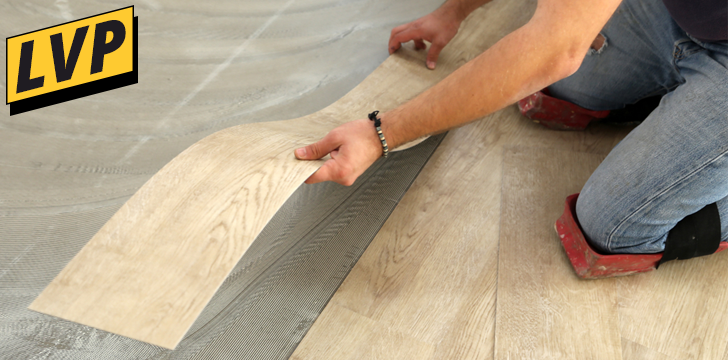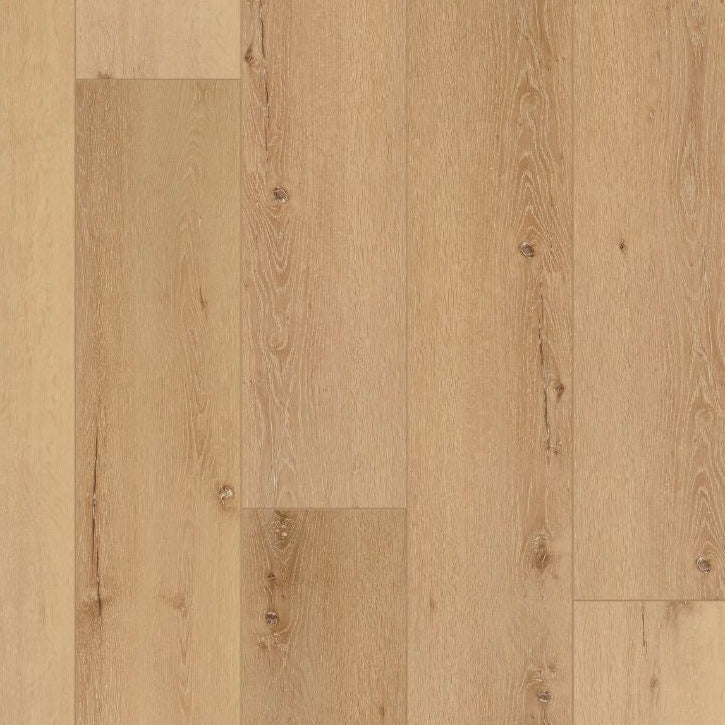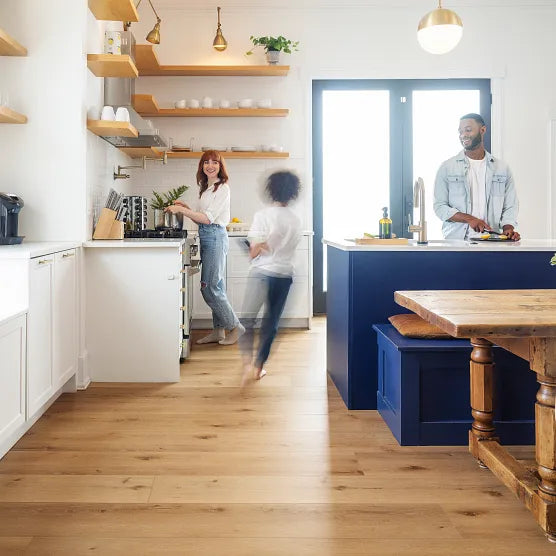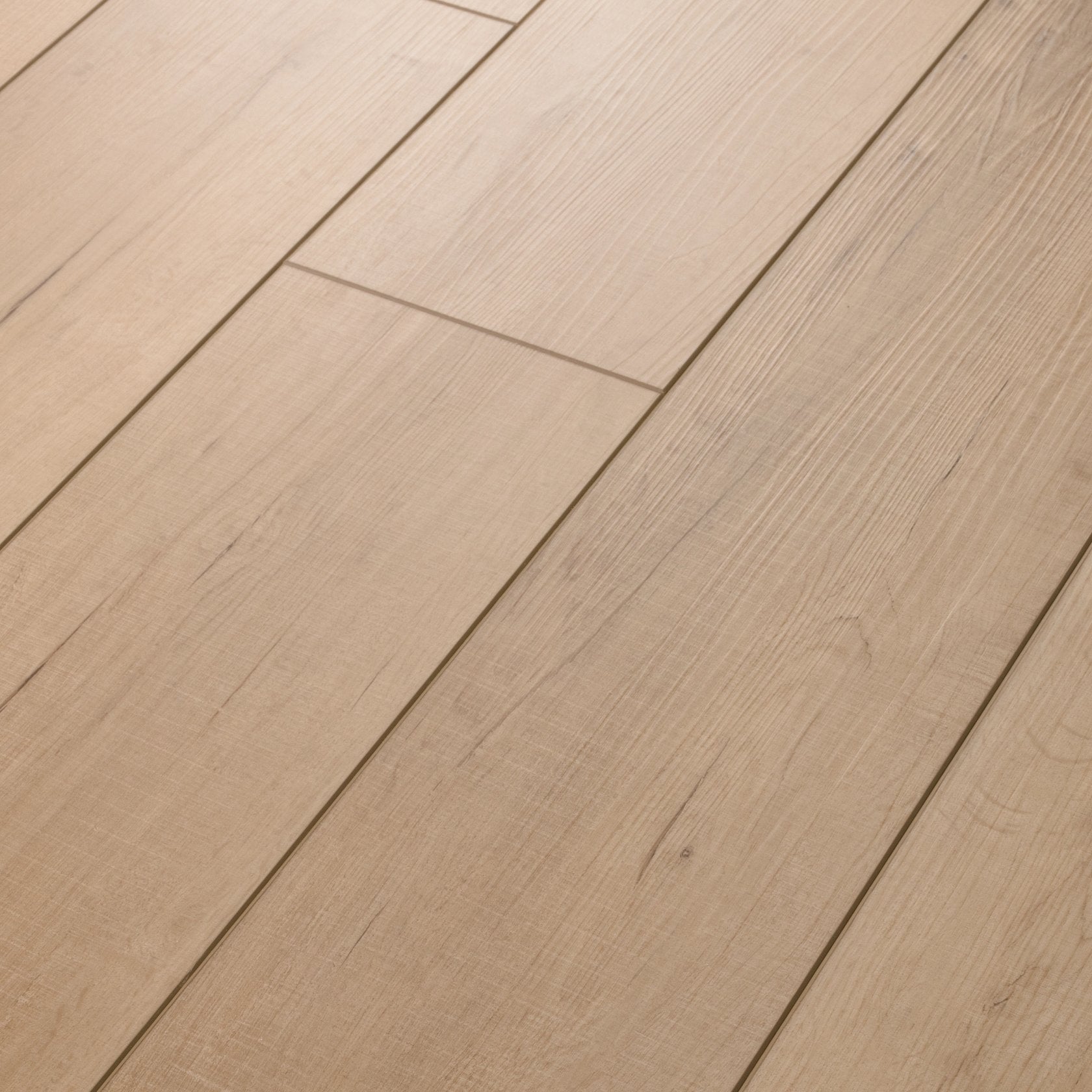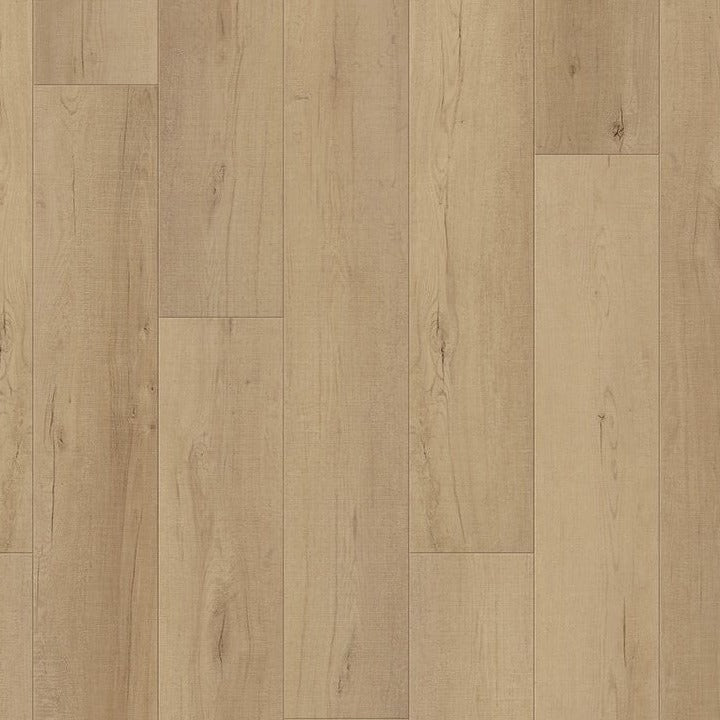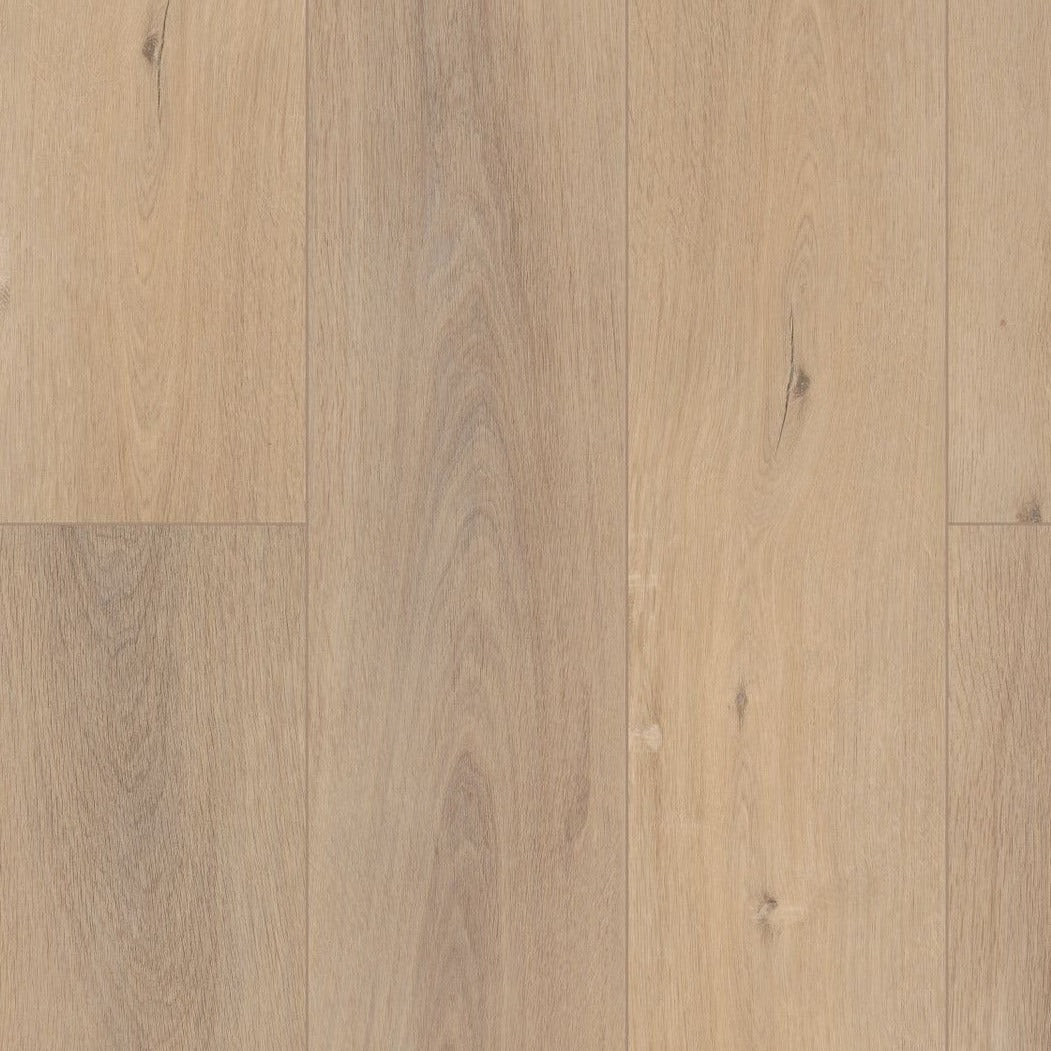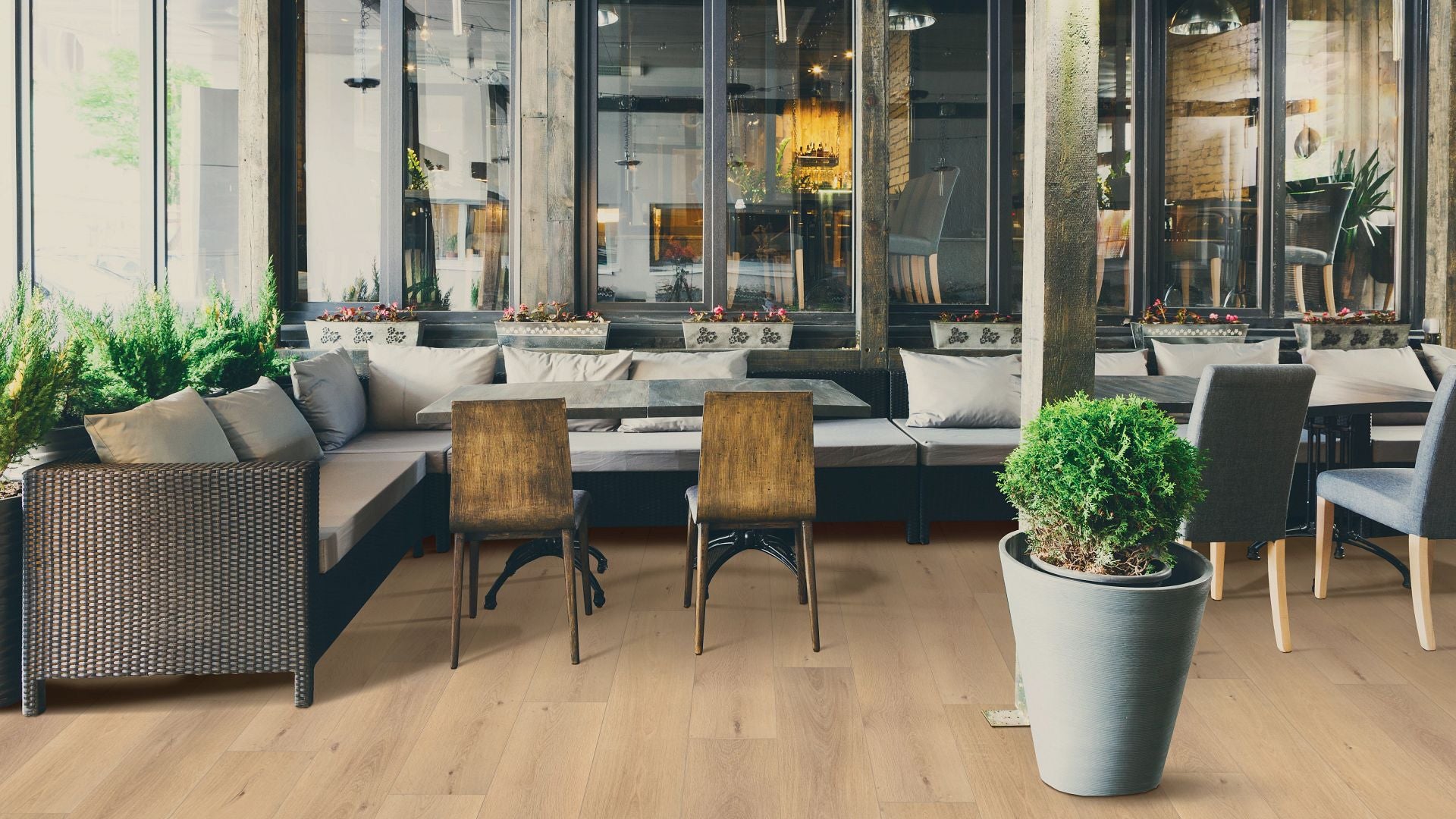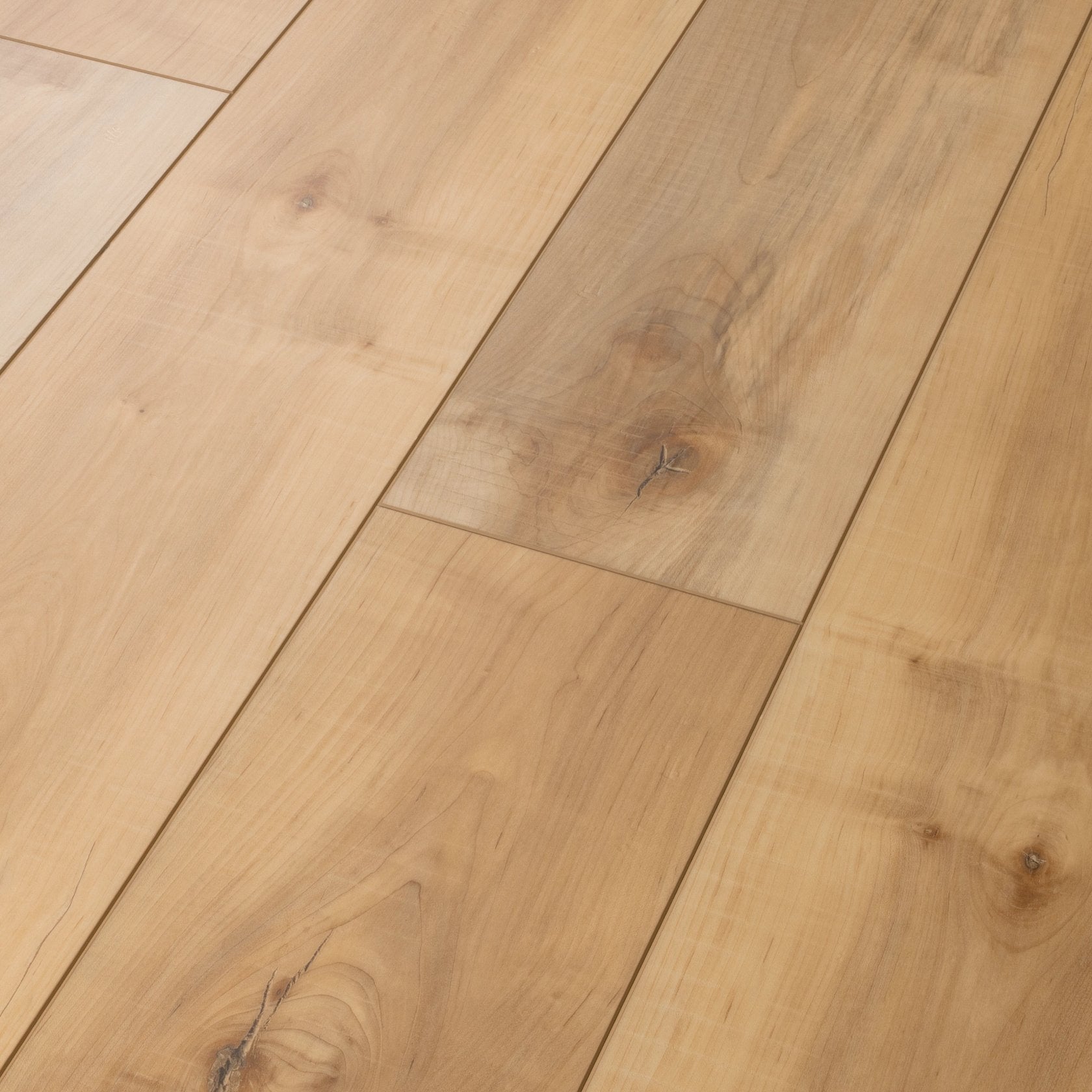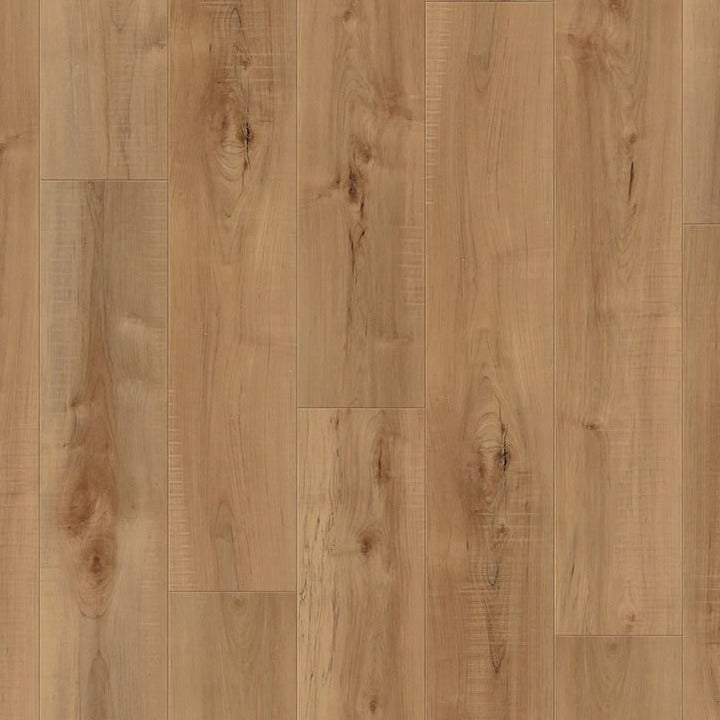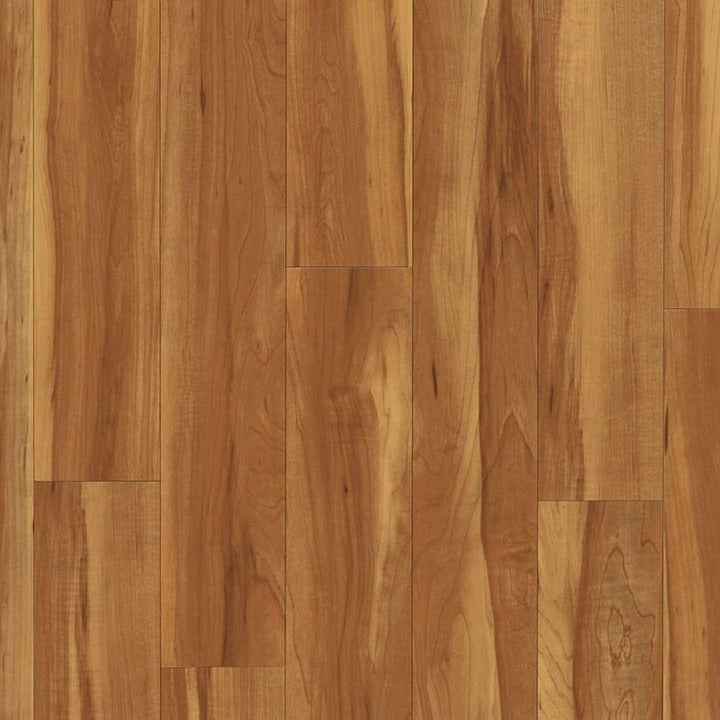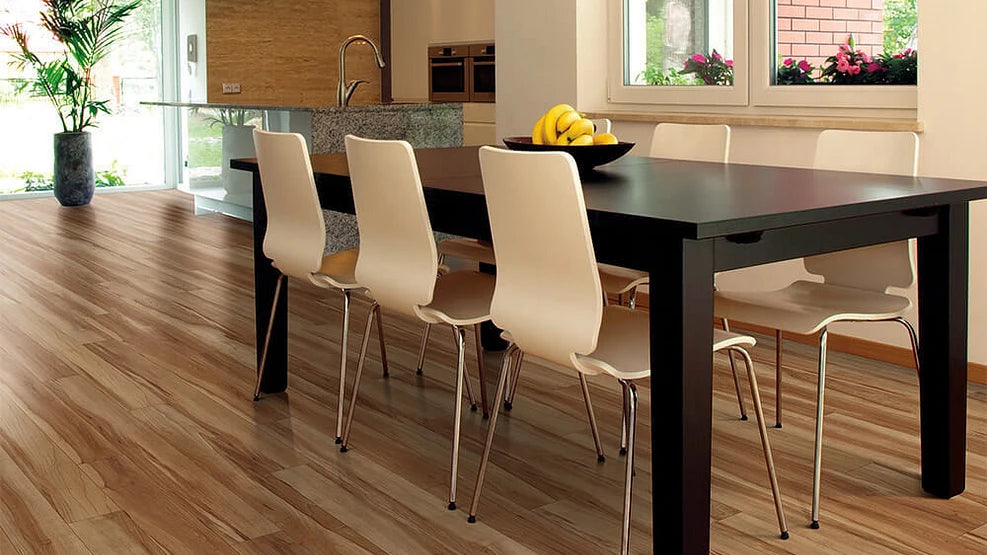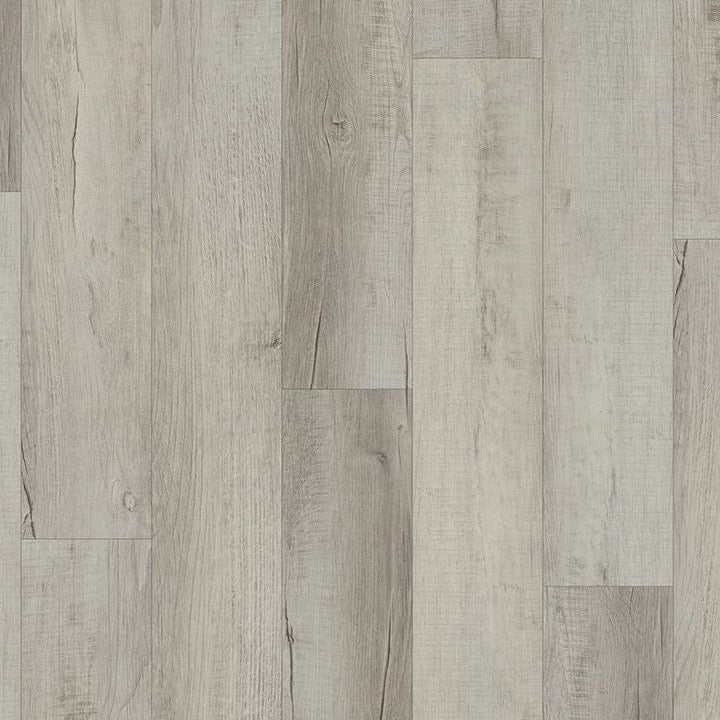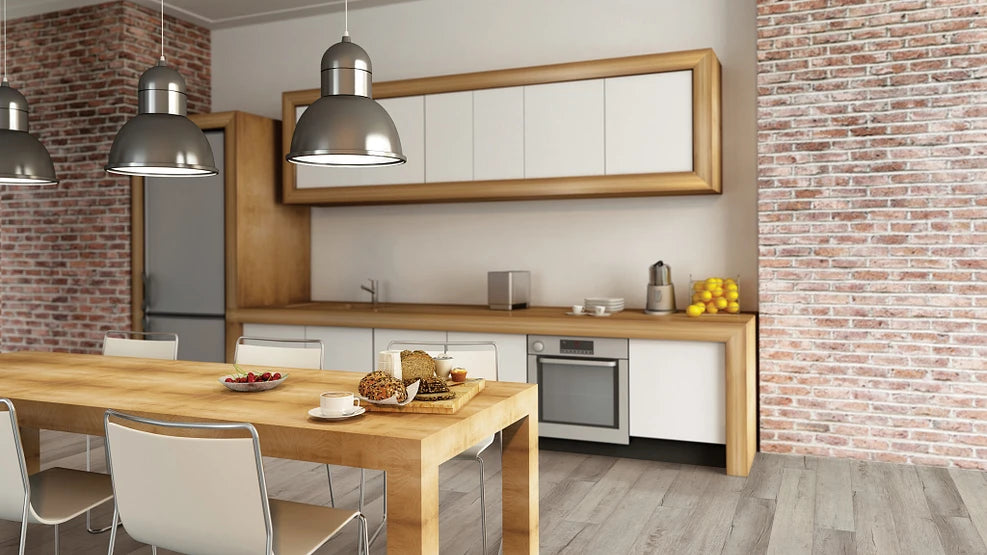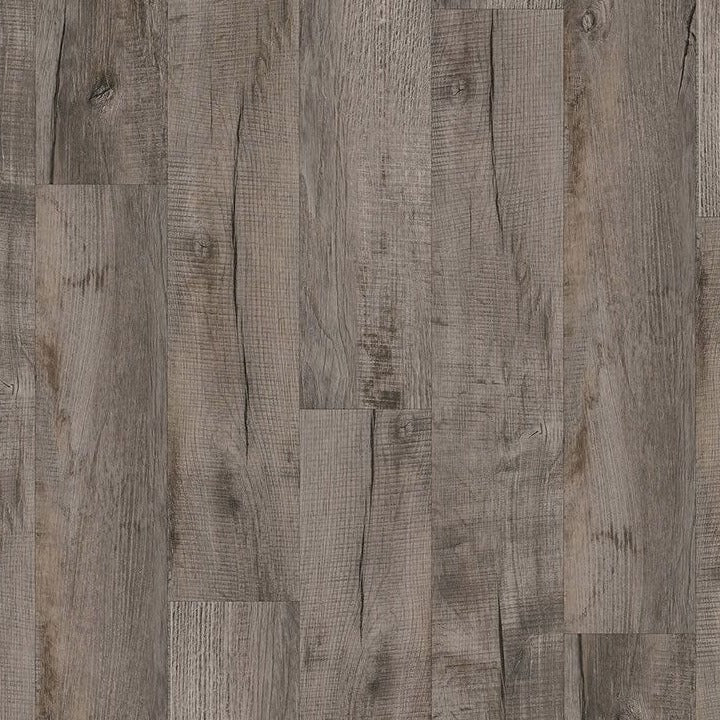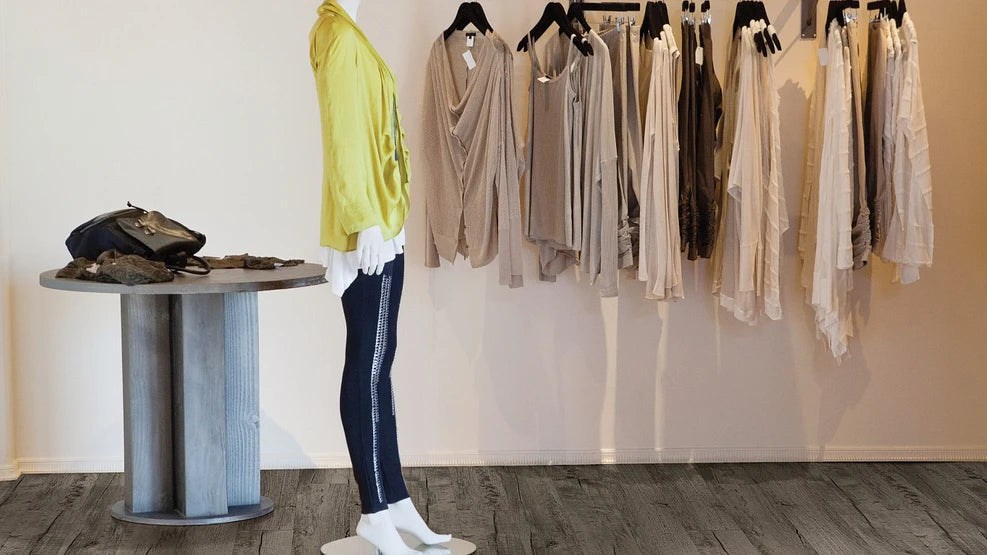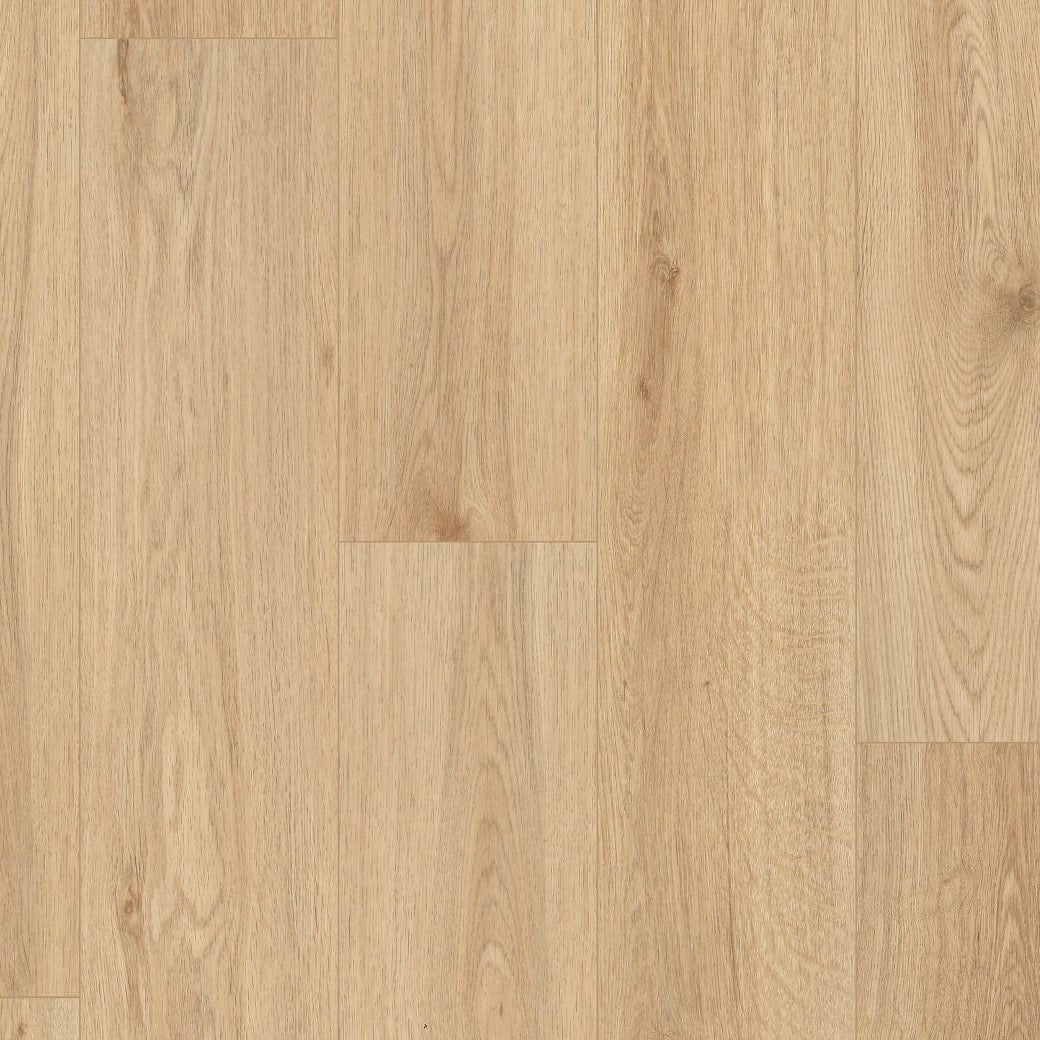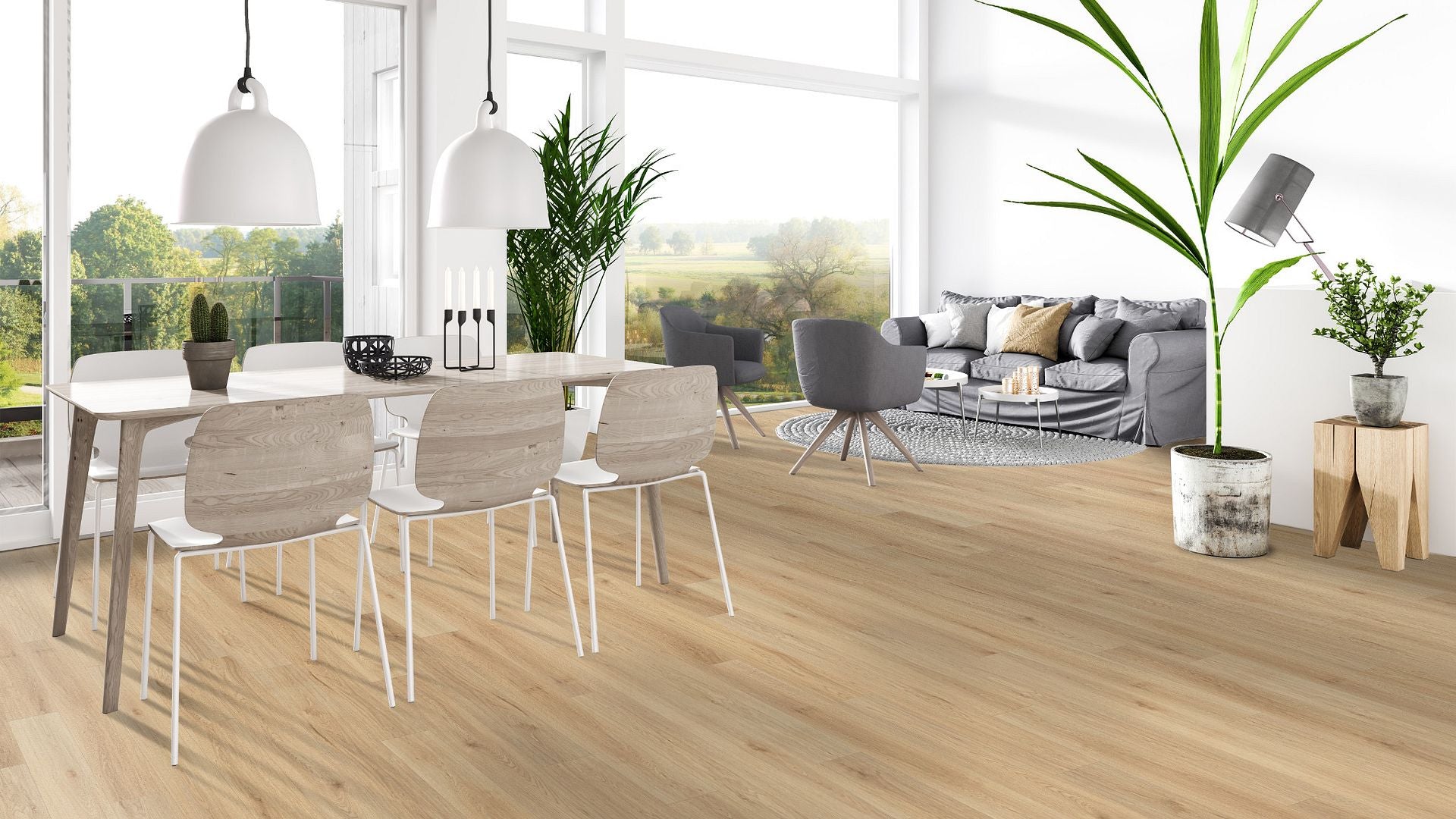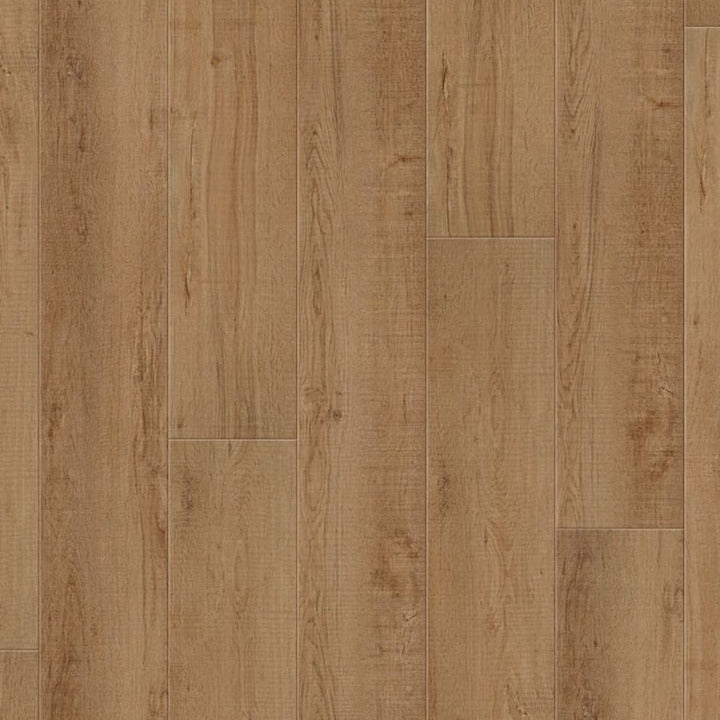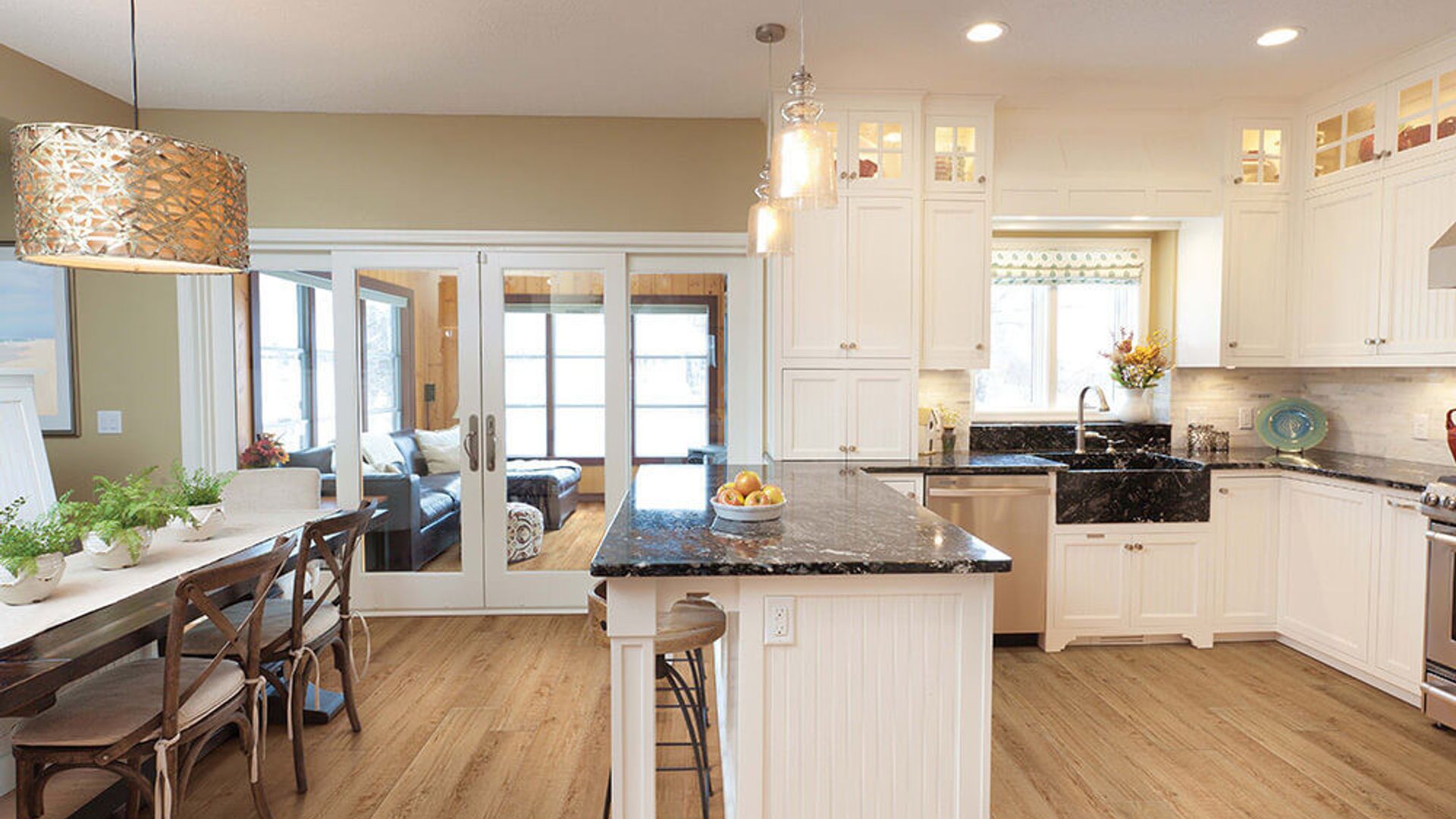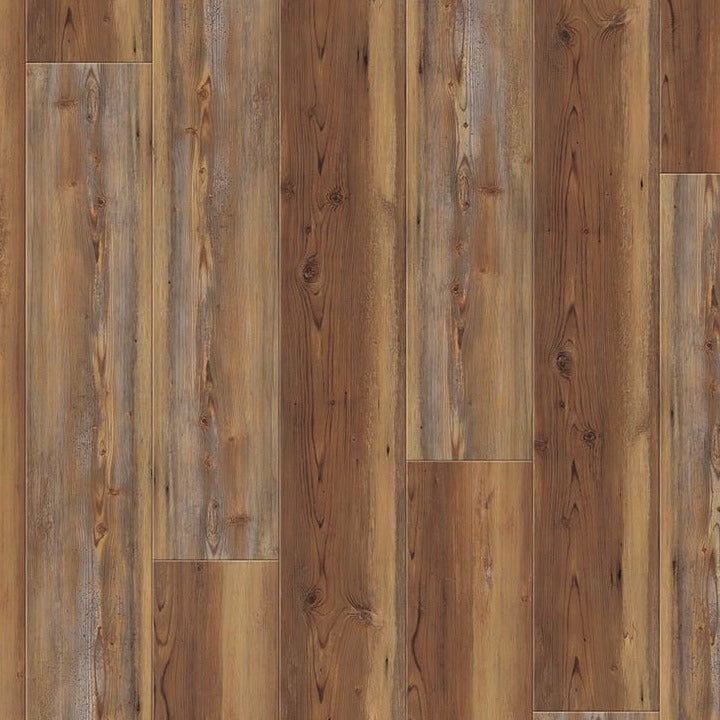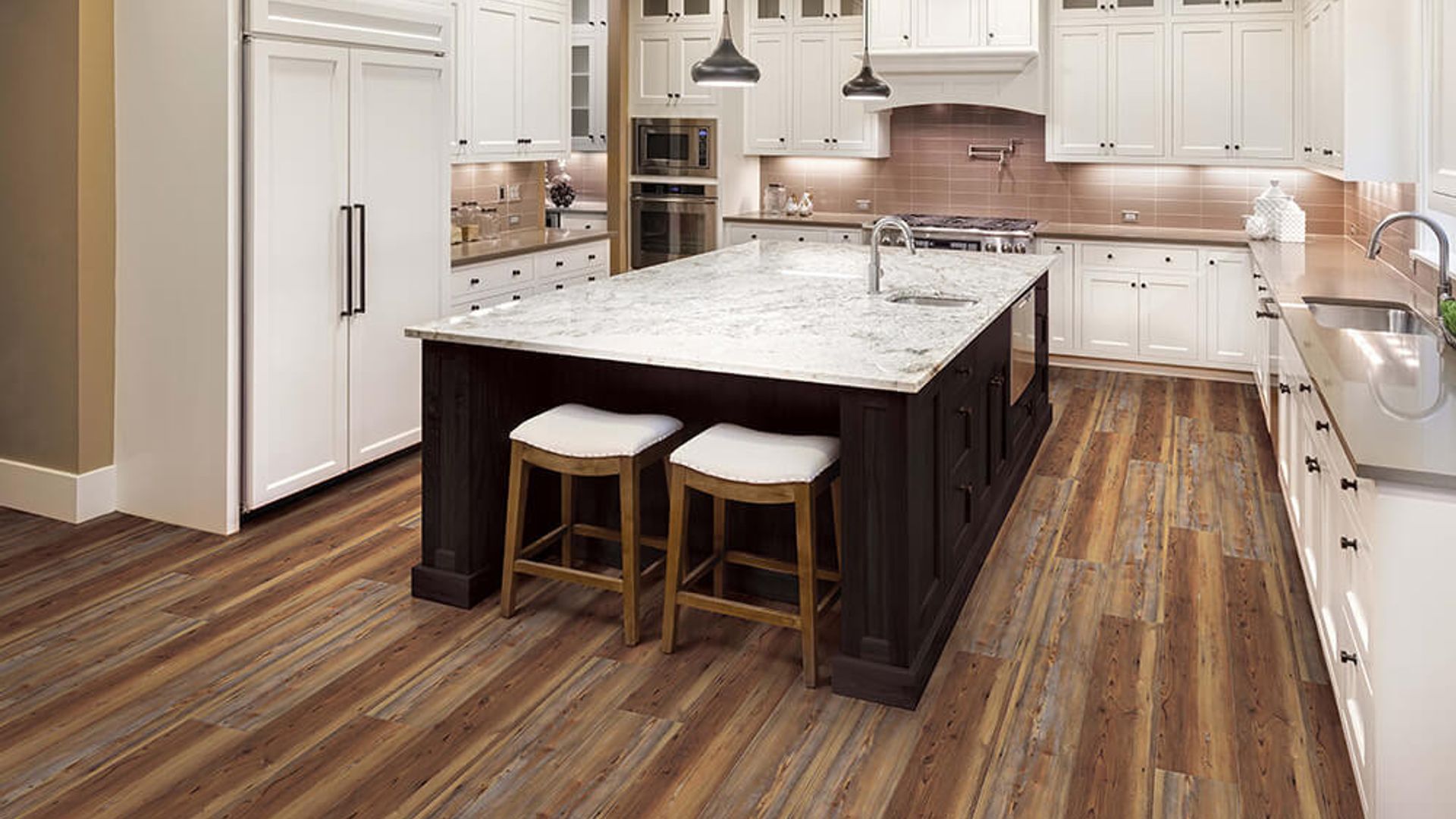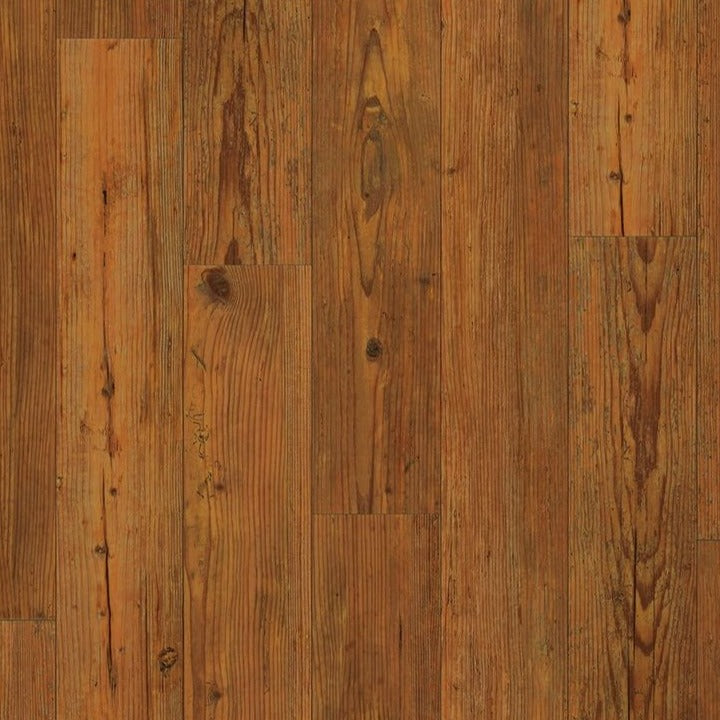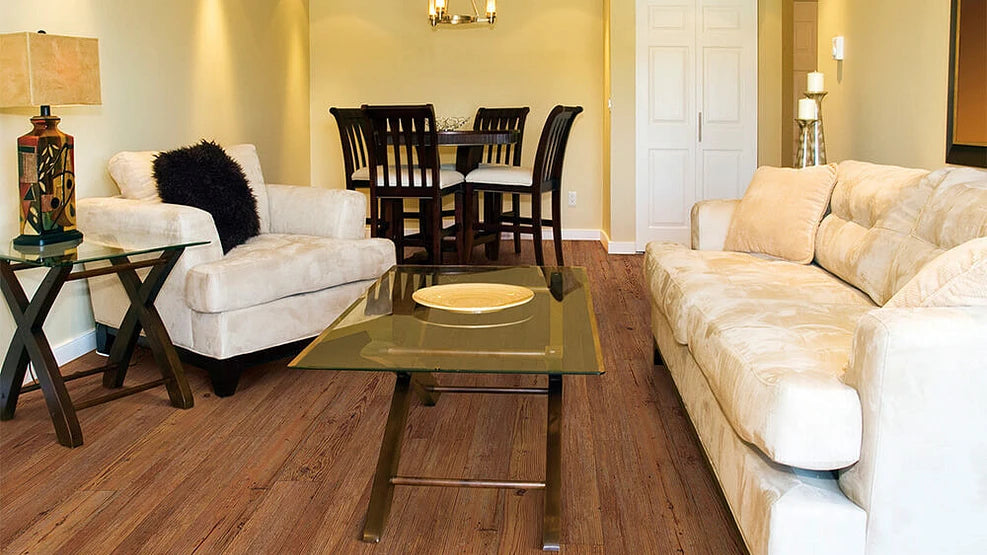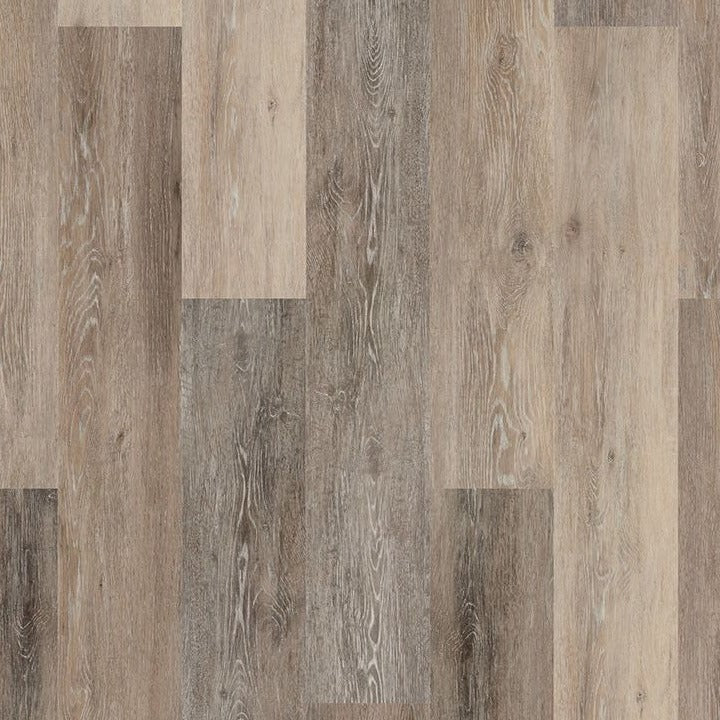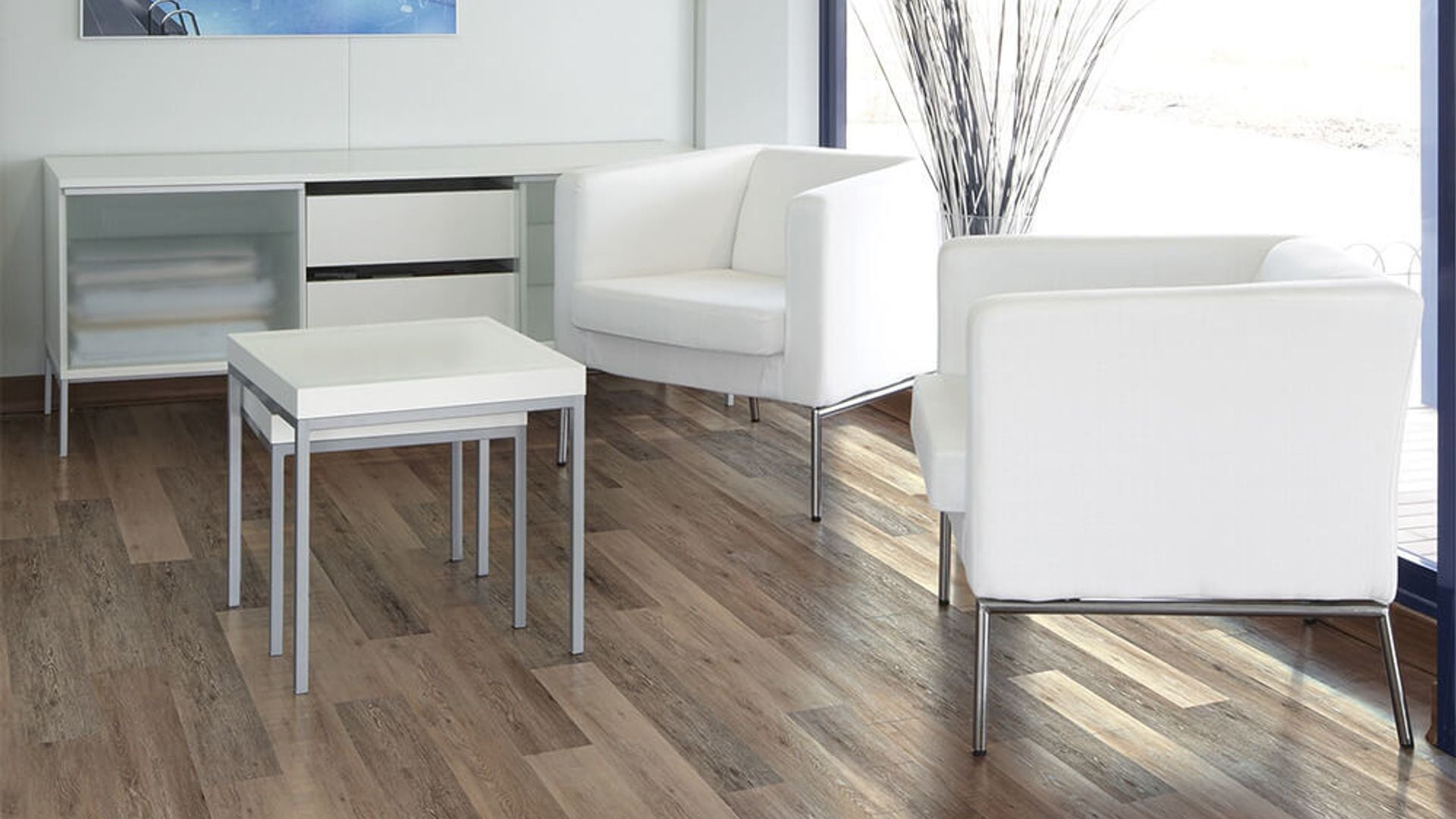Luxury Vinyl Plank | LVP Flooring
[coretec]
Looking for a floor that’s both highly functional and at the same time aesthetically appealing? If yes, then you might want to consider LVP Flooring. Known as luxury vinyl planks in full, LVP is one of the most popular flooring options.
As the name implies, LVP is made from compressed vinyl layers and is designed to mimic real hardwood. Hence, luxury vinyl planks offer an excellent classic and luxurious look at a cost that’s easy on your budget. If you’re considering this option, here are things you should know about LVP Flooring.
5 Factors to Consider about LVP Flooring
You’ll have plenty of choices when choosing the ideal floor material. This can make the task harder than it should be. Knowing more about a particular material option is the easy way out. Below are things you may need to consider when you choose LVP flooring.
1. LVP vs. SPC Flooring
Both LVP and stone polymer composite (SPC) are great vinyl flooring options. They share several similarities but also a string of notable differences. The key difference between the two options is that LVP has a PVC core while SPC has a stone-plastic composite core, hence the name.
This makes LVP more flexible and softer, while SPC is more rigid and thicker. However, they’re both available in a diverse selection of designs and colors and boast a realistic, classic wood appearance. Also, SPC is a little more expensive than luxury vinyl planks, making the latter an excellent choice for homeowners with tight budgets.
2. LVP vs. LVT vs. EVP: Exploring the Differences
Most people often use LVP, LVT, and EVP interchangeably. They are almost similar, except that LVT refers to luxury vinyl tile and is designed to mimic ceramic and stone flooring options. EVP stands for engineered vinyl plank flooring. Let’s break down these three types to understand which flooring suits your needs better.
Comparing LVP to LVT, luxury vinyl planks are wider and longer, while luxury vinyl tile flooring typically comes in smaller square tiles.
Additionally, the manufacturing process for these two types of luxury vinyl flooring can be different. Luxury vinyl tile flooring is often made by printing a high-resolution image of a tile onto a vinyl plank, while luxury vinyl plank flooring is often embossed with a texture that mimics the look and feel of real wood.
Overall, both LVP and LVT are durable, waterproof, and low-maintenance options for vinyl flooring. Both can have flexible or rigid cores, so the choice between the two often comes down to personal preference and the desired look, feel, and style for the space.
What Is the Difference Between LVP and EVP?
EVP is an engineered luxury vinyl flooring that is made up of multiple layers of materials, including a vinyl top layer, a rigid core layer, and a cork or foam underlayment layer. The rigid core layer is often made of high-density fiberboard (HDF) or SPC, providing extra stability and durability to the flooring.
EVP is similar to LVP in that they are both designed to imitate the feel and aesthetic of hardwood flooring but with added features like water resistance, easy maintenance, and scratch resistance. The main difference between the two is the construction of the flooring. EVP has a more robust core layer, which makes it thicker and sturdier than LVP.
What Is the Difference Between Vinyl Plank and Sheet Vinyl Flooring?
Aside from LVT and EVP, sheet vinyl flooring is another popular type of vinyl floor. Sheet vinyl comes in large rolls that can be cut to fit the shape of your room. It is often available in 6- or 12-foot-wide rolls and can measure up to 75 feet long.
Sheet vinyl is often installed in one large piece and can be glued down or loose-laid with double-sided tape. Unlike luxury vinyl tile and vinyl plank flooring, sheet vinyl has a smoother surface than vinyl plank flooring, often available in a wide range of colors and patterns, including those that resemble natural stone or ceramic tile.
Another main difference between the two is the installation method. Vinyl plank flooring is usually installed as a floating floor, meaning it is not glued down to the subfloor but instead clicks together with a tongue-and-groove system. Sheet vinyl, on the other hand, is often glued down directly to the subfloor.
And while LVP is luxury vinyl designed to mimic the look of hardwood or tile, sheet vinyl can have a wider range of looks, including some that don’t resemble natural materials at all.
3. Choosing the Right LVP Installation Method
Choosing the right installation method for LVP is crucial as it can impact the overall performance and longevity of the flooring. Different installation methods may be more suitable for specific subfloors, environments, and traffic levels.
For example, a floating installation method may be suitable for a DIY project or a small residential space, while a glue-down method may be more appropriate for a larger commercial area with heavy foot traffic. Furthermore, the installation method can affect your flooring’s sound insulation, moisture resistance, and stability.
Luxury vinyl plank is incredibly easy to install, depending on the type of LVP product you bought: glue-down, click-lock, or loose-lay.
Exploring the Different Types of LVP Installation Techniques
As the name suggests, the glue-down vinyl product is sealed to the floor via adhesive tape or glue. On the other hand, floating vinyl can be installed by either the click-and-lock method or the loose-lay technique, which does not use adhesive.
To install floating vinyl using the click-lock method, all you need to do is to snap and lock the planks into position using the click-and-lock system that is part of the planks.
When you loose-lay, you only need to place the planks on top of your subfloor. Loose-lay floating vinyl planks usually have a rubber backing, which provides friction and ensures the floor remains in place.
So, which installation technique should you go for? Ultimately, this depends on the specific product and the conditions of the subfloor. It’s important to read the manufacturer’s instructions carefully and to follow proper installation techniques for luxury vinyl planks to ensure your floors stand the test of time.
4. Luxury Vinyl Planks Are Waterproof
With vinyl plank flooring, the last thing you’ll need to worry about is stains. LVP is made of vinyl, a synthetic plastic material designed to hold up moisture and water instead of soaking.
Unlike traditional hardwood and other water-resistant floorings, which can warp, buckle, or rot when exposed to moisture, LVP is designed to be completely waterproof, making it an ideal choice for areas prone to spills, moisture, or humidity, like the kitchen or the bathroom.
Vinyl plank flooring typically consists of several layers, including a durable wear layer on top, a high-resolution photographic layer that mimics the look of real wood, and a waterproof core layer made of vinyl.
These well-engineered vinyl planks can be easily cleaned with a damp mop or cloth, and it resists scratches, stains, and dents, making them an excellent long-term flooring investment.
Maintenance Is Key to Longer-Lasting Vinyl Floors
To ensure vinyl flooring remains beautiful and durable for years to come, it’s essential to learn how to properly clean and maintain it. Ensure routine cleaning with a damp mop and gentle cleaners. Moreover, avoid using abrasive tools that could scratch the surface.
While LVP is designed to be low maintenance, it still needs proper care to keep it in tip-top condition.
5. LVP Is a Great Alternative to Laminate or Hardwood Flooring
Sure, hardwood floors are great and boast a visual appeal no floor can beat. However, they’re expensive to install and maintain. The same case applies to laminate.
Vinyl plank flooring, on the other hand, is less costly than the said options. It is also easy to maintain, requiring only regular sweeping and occasional damp mopping to keep it looking its best. Unlike hardwood flooring, vinyl plank flooring does not require refinishing or resealing, which can save time and money over time. At the same time, it boasts the excellent aesthetic value of real hardwood floors and the durability of laminate.
Is LVP Cheaper than Tile?
Ceramic tiles can cost as much as hardwood and carpet flooring, so vinyl floors are generally much cheaper than tile, especially if you opt for higher-end tile products like porcelain or natural stone. But the cost of luxury vinyl flooring and tile flooring can vary widely depending on factors, such as the quality of the materials, the size of the area being covered, and the installation method.
Installing luxury vinyl plank flooring is often less expensive than installing tile because it is easier and faster, significantly cutting labor costs. Plus, synthetic vinyl is much cheaper than natural materials like stone or clay used by high-end tile products.
However, keep in mind that the cost of LVP and tile can vary widely depending on the specific products you choose as well as the cost of installation. Before making a decision, compare prices and product features to ensure you’re getting the best value for your money.
Choose the Right Vinyl Flooring for You
LVP is the ultimate flooring option for anyone who wants to achieve a contemporary, classic look in their space. It’s affordable, durable, easy to install, water-resistant, and pet-friendly. In a nutshell, there’s nothing not to love about this type of floor. Browse our wide selection of LVP flooring products today and join the world of comfy living on a budget.


